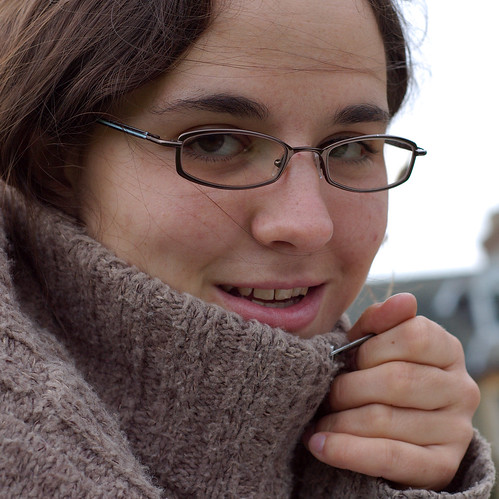Shows like this one by these guys remind me why I fell in love with theatre. I've been getting a bit jaded recently, and this was the antidote. The venue itself helps a very great deal - the Southwark Playhouse is a wonderful space, under the arches of the old London Bridge. It smells of damp and must and ancient brick. The trains go over and round and almost through it, so it vibrates every few minutes. I love that kind of thing, unconventional, atmospheric, a space out of time - all the things that theatre should embody in itself. The gilt spaces of the big West End theatres just don't have that. Black boxes, even, don't achieve the same harmonious background that places like this do. I thoroughly, thoroughly recommend a trip.
The play itself is deceptively complex. There are three characters on the stage, more or less the whole time. One of these is not explained until the very last few minutes, but he does provide a live soundtrack to the piece. That was a really nice touch - soft guitar, reminiscent of Damien Rice, gentle and acoustic and carefully complimenting the action on the rest of the stage. The other two actors form a couple at various stages of a relationship, which again does not completely fall into place until the very end of the play.
The text is tightly structured, in a way is consciously theatrical. It really was difficult to see what parts of the action went in what order until all were laid out, and this drew you along with the story - it made you constantly try and piece it together. THAT is something I want from my theatre...audience involvement. Not shouting boo and hiss, just demanding that you join in. It leaves you with a sense of achievement, like solving a puzzle. An engaging little story is rendered more so by the way in which it's told. It's laugh-out-loud funny in places (the 'proposal'), and it made me cry, too. It really is the oldest story, about falling in love and how hard it can be, but it drew me totally within itself, despite knowing what must happen from the word go.
Given the text is so theatrical, I found some elements of actual performance unnecessary. Like the thing with the lights at the start - I'd actually forgotten about it until now. I would lose that. Not that it took anything away, but it didn't add anything. It made me wonder about lights I suppose, for the rest of the show. Was that the point? But I didn't get the light symbolism, if I was meant to. It was used to change the scene, yes, but was there more? I could probably dig up something about that I guess, but I don't see why I should, really. Was it just there to make a divide between pre-state and show? There are more subtle ways, if so, and this is a subtle play. The dance, later, was similarly conscious on one level, but did not intrude in the same way. It stopped just short of the point where it would have broken the illusion. It brought out the playful childishness of the couple at this point in their lives, and I loved it. Almost too far, but the gamble was allowable. The other point where the theatrical was nearly too big was during the argument, where distorted echoes of the things that are screamed are played back. It's a conceit often used to indicate madness or breakdown (see A Streetcar Named Desire for the most obvious example I can think of, but there are many), and it seemed a bit hackneyed. Suddenly, I was in a theatre and there were sound effects. The pain of the characters at that point didn't need such emphasis. I appreciate that a certain sort of madness and confusion are of central importance to the play, but there has to be a better way.
But there were conceits that did work, like the one sided phone calls to the nosy mother - they provide a huge amount of humour and pathos. The mother's character is clearly drawn even though we don't hear her say anything, and her relationship with her daughter is similarly vivid. I also like that they didn't feel the necessity to use actual phones, which could have created a forced awkwardness. It does help that that actress has a particularly sublime Scots borders accent. I could have listened forever. I'm not sure quite how much the use of screens and white noise behind the phone calls contributed to all of this, except perhaps to create a different space for them to happen in. I think I would have missed it a bit if it wasn't there. Sign-posting the complexity of the structure? Maybe.
I loved this: it was really inspired, beautiful theatre. The things I've picked up were so tiny, in comparison to the holes I usually manage to find in things that are produced with far more money. Pared down and perfect.
'Love is in three parts. First you love the quirks, then they drive you made, then you can't live without them.'
'Sometimes we're the birds in the sky; sometimes we're the statues beneath them.'
I'd go again, but I'm only free tonight and going to London two nights in a row is not on the cards. But anyone else who's free in London for an hour or so one evening between now and Saturday should go and have their lives made brighter.
focaccia with zucchini and potatoes
1 day ago






